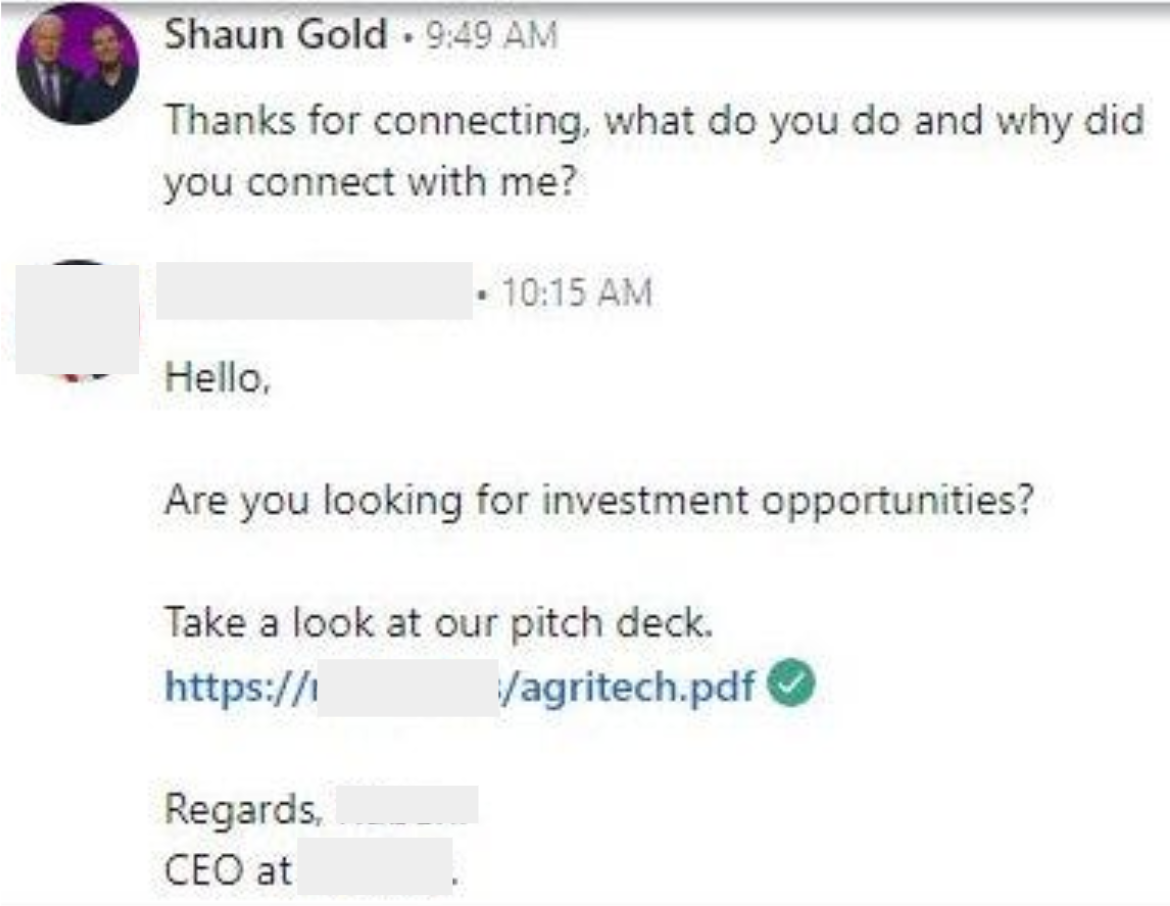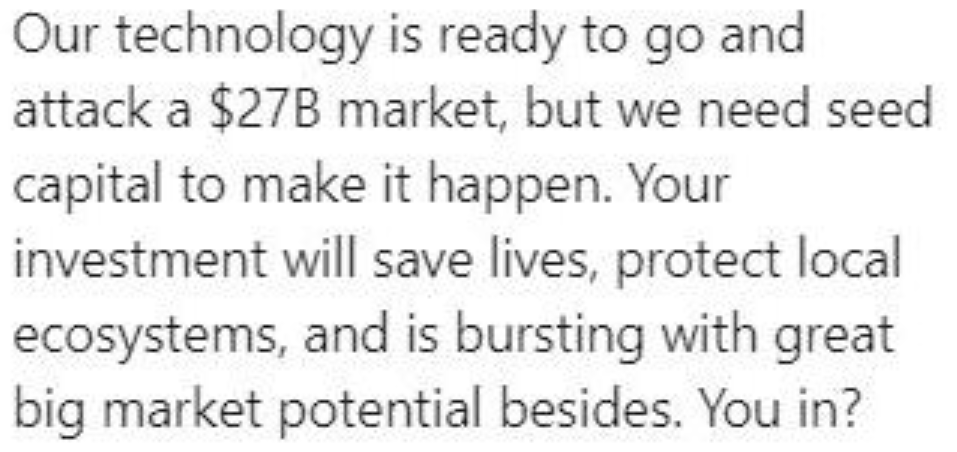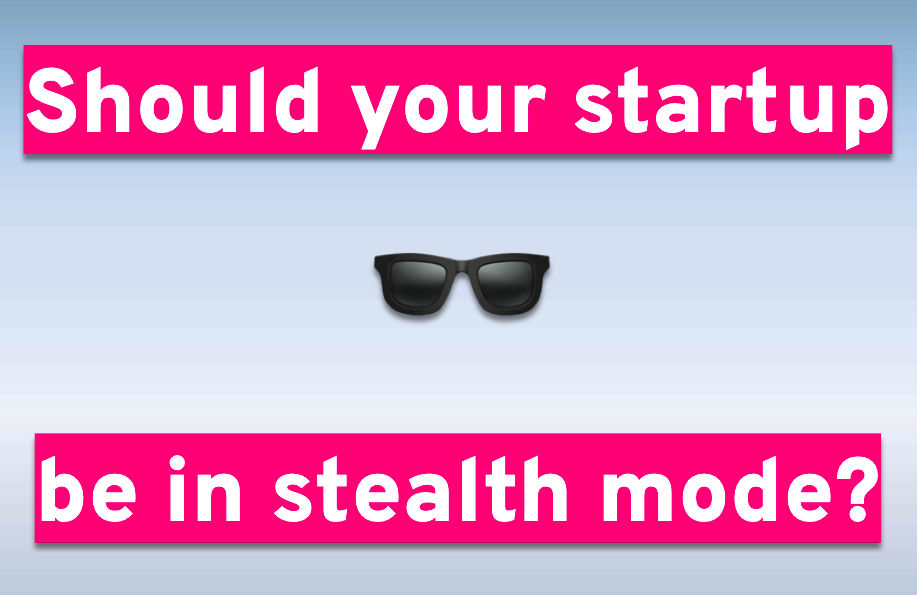So you’re a founder of the next big startup. Your deck is solid, your cofounders are amazing, your vision is unrivaled, and you have big plans to scale up and move fast.
But something is missing.
You need the right people to help you achieve your goals. Whether it be an investor hunter, CTO, or head of growth, there is always someone that can add value. Surely these people are out there, waiting for you to cold contact them on LinkedIn or Slack or Instagram. They will see the big picture and understand what you are doing. They will jump at the chance to help you go from zero to one in a heartbeat.
And they will do it for nothing more than the sheer joy of helping a founder build their business and some options which could be worth more than they could imagine.
Right?
WRONG.
It is one thing to approach someone successful for help, take a call, get to know them, and maybe…just maybe collaborate or work together. It is quite another to pitch them randomly and expect them to work for you and your startup for free. This article is going to break down the mistakes founders make and is based on my personal experiences from my years working in every non-technical role in a variety of startups, a fund or two, as well as the entrepreneur in residence at the Baltic Sandbox accelerator. I hope it helps you avoid these pitfalls and allows you to find the right people at the right price (because no one who is real and who can truly help you is going to work for free, including me).
Table of Contents
The Shark Tank Effect
I don’t have any empirical research. I don’t have any studies or graphs or charts to back me up. I don’t even know if it's a fact, but I just know it’s true. I believe that the average and aspiring founder tunes into Shark Tank thirty minutes late, watches an entertaining segment, changes the channel before the pitch is over and then declares “they got this.”
But they don’t have anything, just a segment of a television show. Real pitches don’t work like this. The first meeting (if you can get one) never results in a commitment and a check. VCs have protocols in place and analysts to weed through decks that they deem opportunities or hard passes. In fact, many use OpenVC just to filter the incoming decks so that their time isn’t wasted.
I call this the Shark Tank effect.
So, where does that leave founders?
In a desperate position to find anyone who could help them get their new trillion dollar idea in front of the “right people.” My years of working with VCs and startups makes me a prime candidate. Here are a few of the pitches I received over the years from complete strangers. If you come away with anything from this article, please do not emulate these founders and their actions.
The “long pitch” DM
This one is more common than you think. A nice and complimentary paragraph to lower your guard and prepare you for the ask.
"Many founders come to DMs of a complete stranger, and somehow assume this stranger owes them time, talents, attention and networks, badly hidden behind a compliment. I generally take is as at best lack of manners and at worst - an egocentric / people user behavior.
I deeply respect and appreciate my own time, talents, skills and my network. And I treat everyone else the same way. Why should i be compelled to accept a free lunch request?"
- Olga Duka, GP at Improve Ventures.
And the ask is always the same.
Smackeroonies, cheddar, dough, green, bread, loot, moolah, and bucks.
No matter how you phrase it, we all want money, founders most of all.
They may lack funds, but they don’t lack guts for sending a DM like this.
Understand that startups are suicide missions. The vast majority are one way trips. CB Insights even compiled a list of 422 notable failures in their entire database. So to ask someone to join you on your journey to riches that will statistically take years and most likely end in the abyss, you cannot and should not expect them to join as a volunteer.
The “I’d love to work with you but I don’t have any money” DM
One of the paradoxes of being a founder is that they will spend countless hours on their idea, product market fit, and value proposition to get it just right. However, they won’t spend any time on looking into the fundraising process at their relevant stage (which I wrote about in detail here ).
Furthermore, they fail to realize the legalities regarding fundraising for those who are broker-dealers and those who aren’t (Full disclosure, I am not a broker-dealer and despite this, people still want me to engage as one for their benefit, damn the man).
Without proper disclosure, any funding agreements could prove null and void.
Speaking of broker-dealers, many VCs I know won’t engage with them.
Why is this the case?
Because VCs don’t want 5-7% of their investment going to someone else, they want it going to the company that they are investing in.
Founders pay attention and don’t act like a rookie.
The “I’m only messaging you for your network” DM
This DM came as the result of a talk I did. One nice polite compliment led to this follow up message.
I simply don’t share the contacts from my network, especially to strangers who only want to use me for their own ends.
Why?
Because I respect my contact’s time and our relationship. I won’t put it at risk by sharing a business I know nothing about and a founder who has nothing more than an under construction WIX page.
Founders need to consider this. Why should someone, a complete stranger, actually go to bat for you?
Things to keep in mind.
- I don’t know you beyond whatever social media profiles are online.
- I don’t know your business or your business history. For all I know you could have been banned by the SEC for securities fraud or had three successful exits.
- I haven’t seen your deck or a one sheet or anything that leads me to believe you have something that is fundable.
- I haven’t had a formal call to understand you as a person, let alone as a business person.
Founders need to stop looking for the easy way and understand that the only easy way is the hard way.
The classic “here is my deck” DM

Not much to say about this except no. I am not an investor. I am not looking for opportunities to invest. I am not working on behalf of other investors for opportunity. Just don’t do this. And if you have a thought telling you to do otherwise, you can use the following picture.
The “awkward transition to showing my deck” DM
Hi there, do you like startups?
I like startups.
Do you breathe oxygen?
So do I!
I am also raising funds, take a look.
Don’t be that guy…PLEASE!
The “I have a zillion connections” offer
Carl Jung once wrote that “a million zeros joined together do not, unfortunately, add up to one.” If only he was around for the advent of LinkedIn.
No one knows 20,000 people, or 30,000 or even 50,000. They may be connected, have exchanged DMs, have appeared on a livestream, but no one truly knows that many people.
How do we know this? Because British anthropologist Robin Dunbar theorizes that we can only maintain 150 connections at once. This is known as Dunbar’s number.
Having someone offer their thousands of connections to help you or in exchange for something is not only useless, it is flat out wrong.
Furthermore if you encounter someone boasting of their connections or follower count and how it could benefit you, run for the hills. It is equivalent to a condemned man bragging about the size of his cell.
The “we have no idea what we are doing so join up” pitch
So let me get this straight.
- You need investors (Who doesn’t?)
- You need resources.
- You need board advisors.
And money doesn’t matter because this is such a large opportunity to get in on the ground floor!
I would recommend an angel but in this case, you don’t need an angel, you need a miracle!
Founders, please reach out to your own close network of associates, colleagues, friends, enemies, pets, people that know you. It will be a lot easier, trust me.
The “save the world” pitch

These kinds of pitches always attempt to pull at the heartstrings. Not only do I get the chance to save lives, the environment, and the world, but I can make a huge return!
"This one is on my bullshit bingo card."
- Olga Duka, GP at Improve Ventures
But only if I am in.
And I am out!
The “everyone works for equity” pitch.
It is one thing to team up with your friends or colleagues who you have previous work experience with and form a company. Or even your former classmates who you have a relationship with. For example, Jerry and David from Yahoo met at Stanford as did Larry and Sergey from Google. Mark Zuckerberg also met his co-founders while at Harvard.
But it is something else entirely to have one conversation in passing and expect people to dedicate their lives to your innovative Uber for yogurt startup. I didn’t have the heart to tell him that VCs often aren’t ready to commit at the “I don’t know the name of the company” stage, but I am sure he was going to have no trouble learning that.
Bonus Round
The following bullet points were said to me over phone calls. So, unfortunately, you will have to take my word for it. I assure you they are 100% accurate, true, and I am still laughing about them to this day.
- I was told that a startup needed funding ASAP. Specifically within “a New York minute.” So much for due diligence.
- Someone asked me for an angel. When I asked them for a deck, they had no idea what I was talking about. St. Michael himself could have come down from the heavens and provided a check and this founder wouldn’t have known what to do.
- I was asked for multiple angel investor contacts within twenty-four hours because the founder's birthday was the next day and they wanted to “speed raise,” whatever that meant.
- I had my LinkedIn network scraped and was asked for warm introductions to a dozen investors because someone had a really “great opportunity they would all love.”
- I had someone ask me to find them not only an investor, but a producer for their television show. Both the company and the show were nonexistent (company was barely beyond the bootstrapped stage and the show had a few viewers, not a thousand, a few). Needless to say, Sequoia and Sony weren’t contacted.
Concluding thoughts
What has worth is worth paying for. Successful founders understand and realize this. Anytime I am approached with an “opportunity”, I tend to end the conversation abruptly unless people are serious.
And you should always be serious.
Professional people are in high demand and they have responsibilities and material needs. Unless they truly believe in you or your startup, they won’t trade a certain good for an uncertain better, especially for nothing more than equity or an I-O-U.
Whatever you need to get accomplished for your startup, make sure you have a plan to incentivize the person you are reaching out to. Otherwise, it is a waste of your time and theirs.
About the Author
Shaun Gold is the true definition of a polymath. He is an entrepreneur, best-selling author, guest speaker, super-connector, Jeopardy player, screenwriter and former nightlife ninja. At OpenVC, he heads content and serves as the roast master general at the pitch deck roasts. He can be reached at [email protected]. Show him you read the article but not using one of the pitches listed here.








